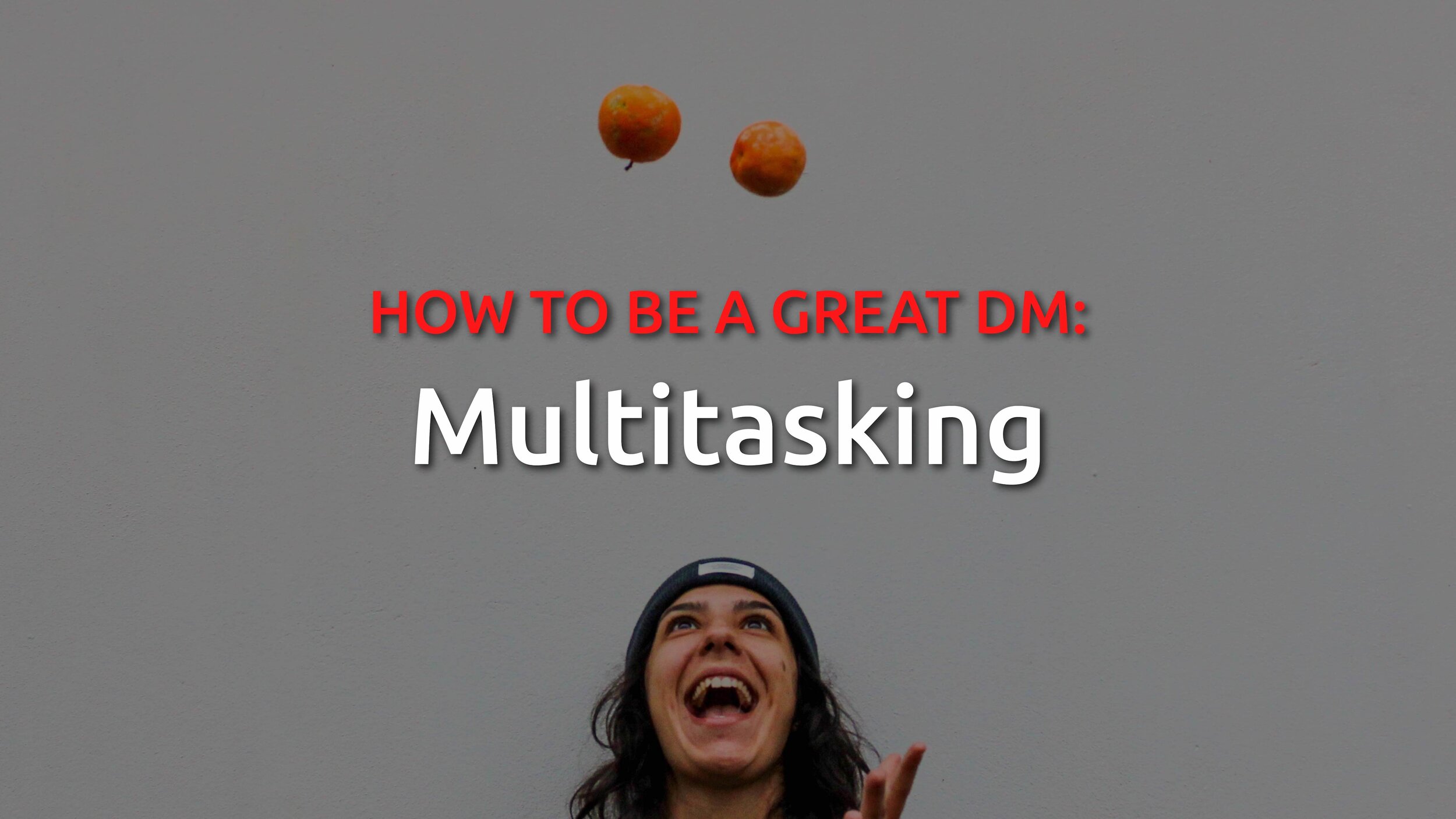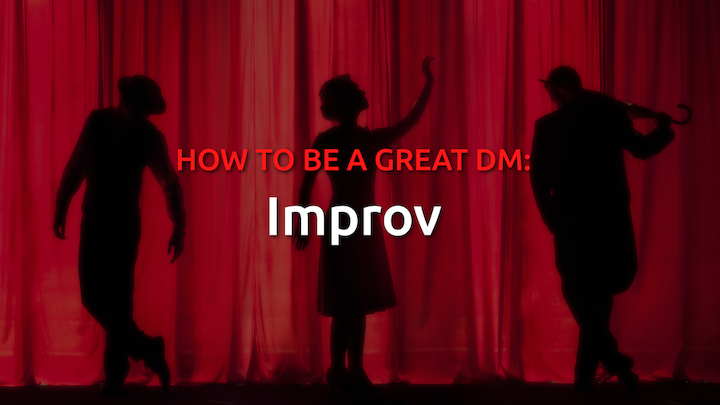Greating DMing: Acting
Be the character
So the next important task a burgeoning DM needs?
ACTING!!!
Or at least what passes for acting in the basement with your friends while riding a Mountain Dew sugar high. Much like the cavemen of old, you will need to bring to life an imaginary world for the enjoyment of everyone sitting around your fire / table/ holodeck (I want this blog to be relevant for the next generation). And to do this you will need a bit of acting.
Note: I know I said improv was next but realized as I wrote this that it was kinda dumb to talk improv before acting. Roll with me here, I am new to this whole blog thing.
Selling the story
Acting really helps to sell the story.
One of the challenges with DMing is that each NPC in your story is a different person with all their wants and personality. One NPC might be a goblin, another might be a grandmother, and another might be a gnome child. But all their words are being delivered by you. That can be confusing, so it really helps if you can differentiate each one.
This means that when you talk as that NPC, you start behaving like that NPC. Maybe the noblewoman stands tall and looks down at the players. Or the greedy merchant bends over, ready to snatch any coin that dares come too close. It could even be as simple as an old woman constantly waving her left hand as she speaks. This kind of repetitive movement can help the players and you recognize a character almost immediately.
Make decisions
When you are acting as an NPC in your game, I find it helpful to go big or go small. Mostly this means that a “big” character is an outgoing extrovert that makes grand gestures and has a booming voice that cuts through the room. While a “small” character is more reserved, introverted, and less prone to drawing attention to themselves.
I personally favor the “small” characters the most, as I find it a blast to use normal gestures and mannerisms to bring them to life. Like the old woman constantly waving just her left hand or the impeccable posture of the noblewoman.
The contrast between characters is what really differentiates them. If you feel you have several characters with small gestures or voices, maybe consider modifying one of them into a bigger character.
Here’s what I do when I start voicing a new NPC for the party: I pick a new motion or tic and use it in the introduction. If I waved my left hand for the last NPC, I find something to contrast that movement, such as adjusting my hat or rubbing my mustache. It helps to picture that NPC in your mind, especially what they might be wearing.
In the end, your decision to repeat one motion, go big or go small, and differentiate each character is the important step.
Indecisiveness - changing character traits or jumping between big or small reactions - is confusing to players.
You’re the DM - make a decision and stick with it.
Avoid cloning
A common pitfall among new DMs is to dive headlong into their characters with a lack of variety. Each character is a clone of some kind of generality. It’s like this, when all the barbarians sound like jocks, the nobles are elite jerks, or even every farmer’s wife has a heart of gold, you have a problem. People are varied to an almost unbelievable degree.
If your NPCs are all 2D cookie-cutter characters then the players will think of your world as two-dimensional as well.
Each NPC should be treated as a man or woman with their own wants and needs. Perhaps that noble is an absolute jerk but has an exception for his only daughter, for whom he would move heaven and earth. Suddenly that character fits the jerk elite type but has more depth and motivation. Great stories are built on characters like that.
Now, why is this included in an acting blog? Isn’t character design a separate concept altogether?
NPCs don’t truly come to life until the DM gives them a voice. It’s easy for a Dungeon Master to write a few notes on paper about a character, then develop that character out loud as the party interacts with him or her. After all, you don’t always know as the DM who your party might choose to confront.
Sometimes you don’t notice character similarities until you start to act out a character.
If you want to avoid cloning, write down a weird characteristic about each NPC before you start your campaign. Just one. No need to get into the character’s entire backstory.
Here’s an example. When Johnny Depp was developing the Captain Jack Sparrow character (which he was almost fired over), he reasoned that Jack would have some balance problems on land, due to his constant seafaring ways. So he decided to hold his hands out to the sides as he walked and sway a bit, as if slightly drunk. This flair drastically changed the audience’s perception of Captain Jack in Pirates of the Caribbean and came to define so many more things about the pirate.
If Depp had decided to play Jack like he was written - a serious, mysterious and dangerous pirate captain - would he have redefined the pirate movie genre and created one of the highest-grossing film franchises of all time?
When you’re DMing, channel your inner Depp - add a weird trait to each of your NPCs. You and your players will thank you.
Last thoughts
Good acting can really help sell the world you are creating for your players, helping them keep different characters separate in their mind. Whether through acting big or small, it can turn one-off characters into table favorites that they cannot wait to see again.
You don’t have to be as accomplished an actor as Johnny Depp. Instead, focus on the little things you can add to characters to give them a presence in the story and make it come to life for the players.
Remember, all the organization in the world is helpful. But with a DnD campaign, chaos is likely.
#NumberOneJosiah
Jo is our co-founder, resident DM for Hire and a philosopher of tabletop gaming.
Jessie CM
Jessie is our marketing guru, lover of #NumberOneJosiah and a published author.
Check out some of our Featured blogs!














Kickstarter is a crowded place, so to launch a successful campaign it’s important to know what you will need ahead of time. Specifically, what you're selling, how to make it look fancy, and making certain you know your numbers.